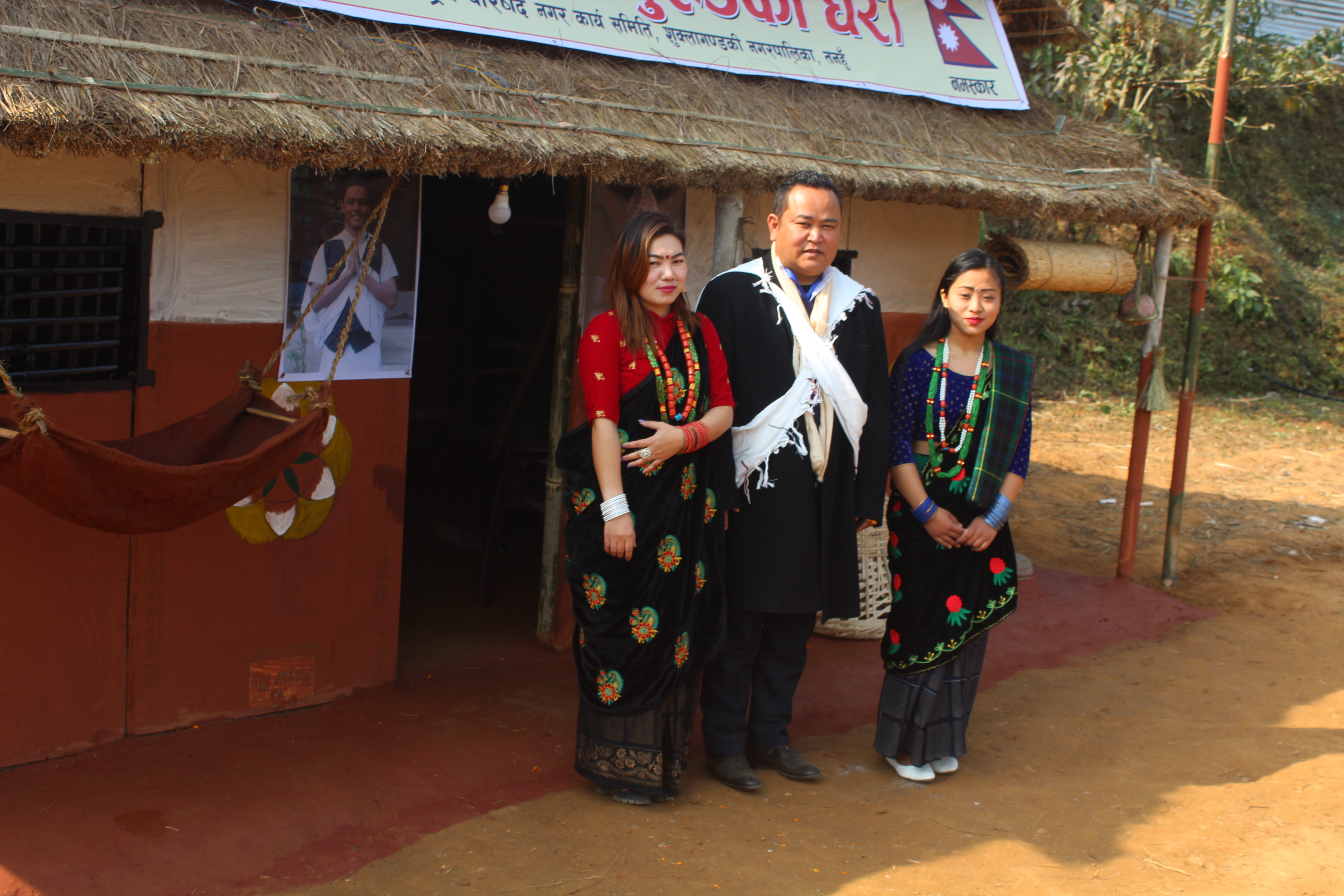Typical Gurung house attracts visitors at Shukla Gandaki Cultural Festival
DAMAULI: A traditional Gurung house has become the major attraction for visitors attending Shukla Gandaki Cultural Festival being held in khairenitar of Tanahun district.
The festival is organised by the Nepal Federation of Indigenous Nationalities Council Municipal Working Committee, Shukla Gandaki.
The house, made in a typical style in order to preserve the identity and tradition of the Gurung culture, has been attracting a large number of visitors at the festival because of its striking appearance, said Tamu Hyula Shukla Gandaki Municipality Chair SherJung Gurung. He further added that the content of the houses reflected all the conventional activities and rituals performed in Gurung culture from birth to death.
The house, made up of stones, mud, straw, bhaataa (staff), white and red kamero (clay), consist of traditional furniture and appliances such as dhiki, jaato, bee-hive, khaijadi, dhyangro (drum), dadi, jholungey, jaal (net) etc. It has been learned that the construction of the house took 8 days to complete.
Manveer Gurung, Hasta Bahadur Gurung and others have made the special contribution into constructing the house. Gurung Society from Tuda, Sera, Phirphirey, Syauli, Khaireni have contributed about thirty-five thousand rupees. On the first day, more than ten thousand people observed the house, admitted SherJung Gurung, who is also a social worker. Those who observed also received information regarding Gurung ethnicity and culture.
The festival also holds stalls serving traditional food and delicacies to the attendees. A substantial number of attendees mentioned that observing the house has been the main reason for attending this festival.
Likewise, attendees were also drawn toward houses belonging to Magar, Bhujel, kumal, Tamang and Newar Communities, informed Festival Coordinator Bimal GC.
Meanwhile, Gurung communities from all over the province have been invited to Tamu-associated special event happening at the same location on Magh 5.
(Translated by Nikki Hamal)






